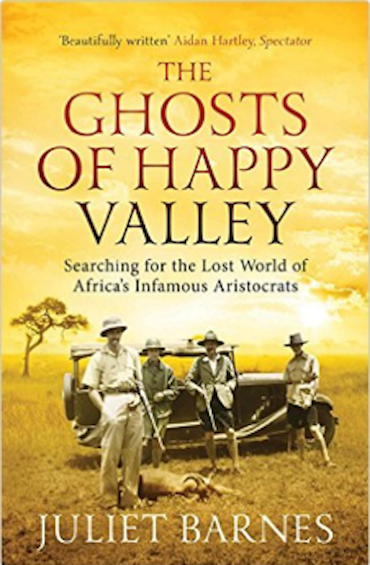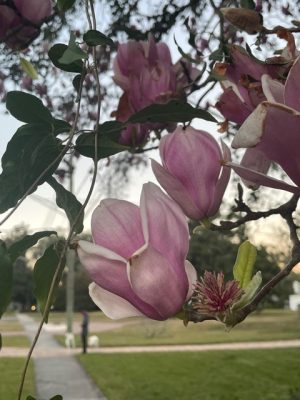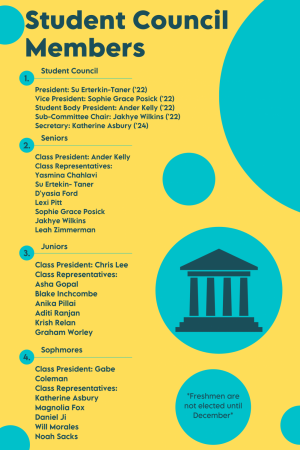Stories Within Stories: Bolles Bugle Hosts Guest Author, Juliet Barnes

Before settling on Ghosts of Happy Valley, Barnes originally planned to title her novel Champagned Charcoal.
October 4, 2016
When the author of Ghosts of Happy Valley Juliet Barnes is not on walks behind her house confronting a buffalo or a 10-foot spitting cobra, she visits her childhood friend from Kenya in Jacksonville and speaks to the Bolles Bugle.
Barnes spends her days on Samburu National Preserve, a 56,000 acre World Heritage wildlife conservatory in her home country of Kenya where she can live, says Barnes, “a life of my choice.” Her closest neighbor lives about a mile away. She forgoes electricity, relying on solar, and depends on one grocery shopping trip a month at the local store an hour away, but the wifi and phone signal have improved slightly over the years. To this day she said “If the sun doesn’t shine, my laptop dies.”
Barnes spoke to the Bugle about her experiences writing her most well-known book Ghosts of Happy Valley and her lifelong career in writing from short stories, articles in children’s encyclopedias, to her time as a correspondence journalist with London based papers.
Going from life in Kenya to interacting with the hoity toity of the intellectual world of London, Barnes experienced some culture shock from a life where she “never really wore shoes” said Barnes.
She wrote many intense articles when contacted by the UK magazines to navigate the complex politics of Kenya. When writing acclaimed articles like “The Refugees in My Back Garden,” the life of a journalist grew too stressful. She recounted a time when her editor insisted on sending a photographer to her on location in Kenya but refused to listen to her as she said “I don’t have a street address.”
When asked if the photographer could meet her at her house she then had to explain her P.O. box stands a mile from her home.
Her career writing for children’s encyclopedias followed the growth of her children. When she first moved back to Kenya single with a six-year-old and an eight-year-old, she discovered that kids are “the best guinea pigs” said Barnes. She transitioned to stories focused on teens as her kids became teens.
Before taking questions from the Bugle that students prepped for the three days leading to her arrival, she spoke on her experiences writing Ghosts from the idea to publication to the press tour.
A black Kenyan conservationist named Solomon approached her with the idea to write a book on Happy Valley, a far departure from her usual writing. Though Solomon lived in poverty and was largely self-taught, he had already found all the houses of the old patrons of Happy Valley, a beautiful area filled with horror stories about the white settlers that used to live there in the 1920’s and 30’s. Despite being a native Kenyan, as a white woman, often she would not be allowed to enter areas without her male guides so Solomon was an essential part of her story.
Throughout some of the harrowing experiences she had during spooky field research in haunted bedrooms to galas in London, Barnes said “It’s amazing what you can do if you have to.”
After 11 years working on the project, the hardest part did not end with the writing. On the search for publishers she said she received “so many rejections if you put them on me then I’d probably be crushed.” Despite her special insight on the story as a native Kenyan, she said “being Kenyan makes it harder to get published” at the London agencies.
Throughout most of the writing experience, Barnes says she struggles to believe in a project, calling herself “Mrs. Doubt”, but now due to her steadfastness she is armed with a book which contains Solomon’s wisdom and conservationist message, she prepares to embark on a press tour for her debut novel.
Among stories of haunted houses, she left the Bugle with some wise words for young writers: Never keep your backups in your laptop bag and always have a notebook on you, even if you have to borrow a lot of pens.





